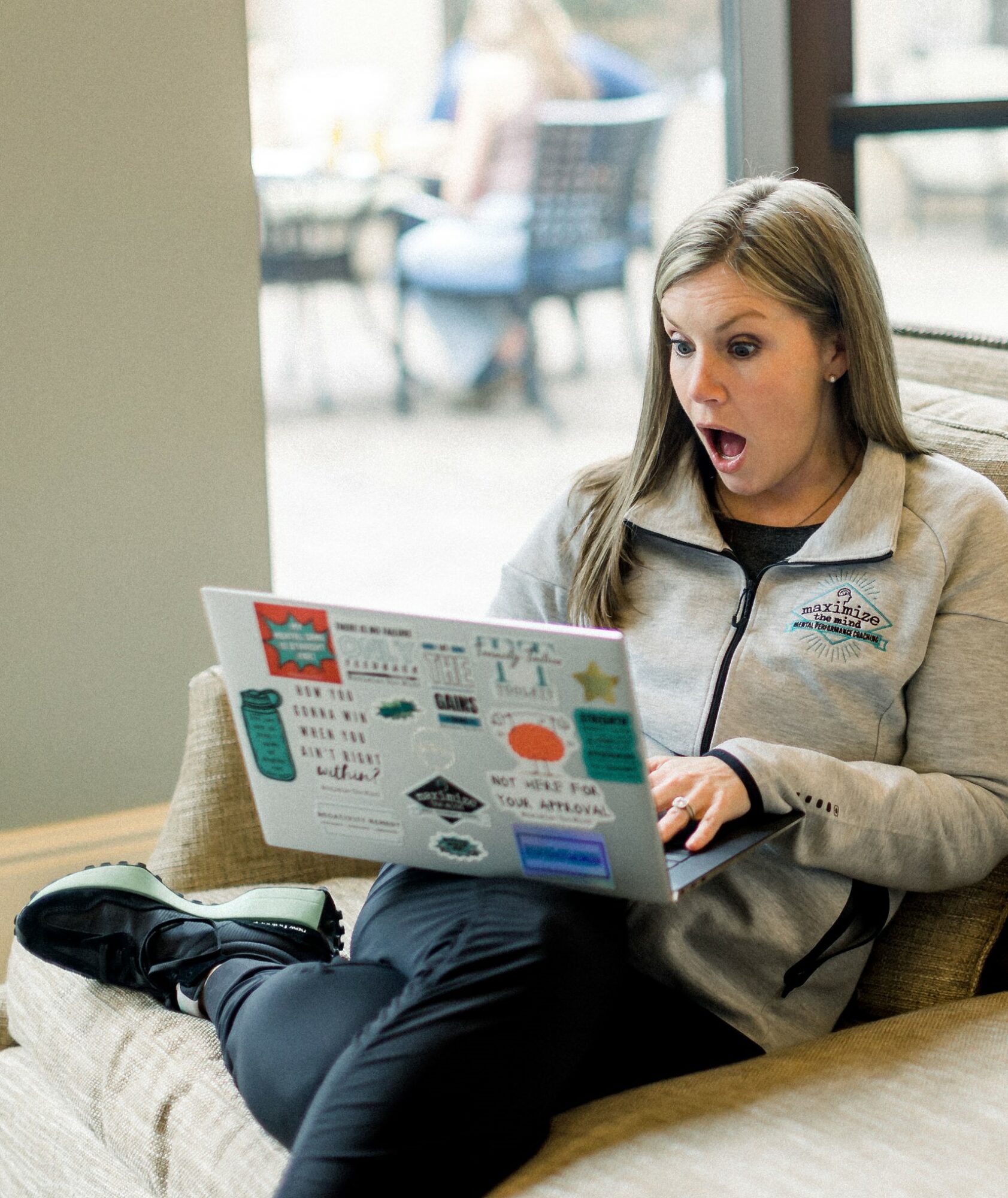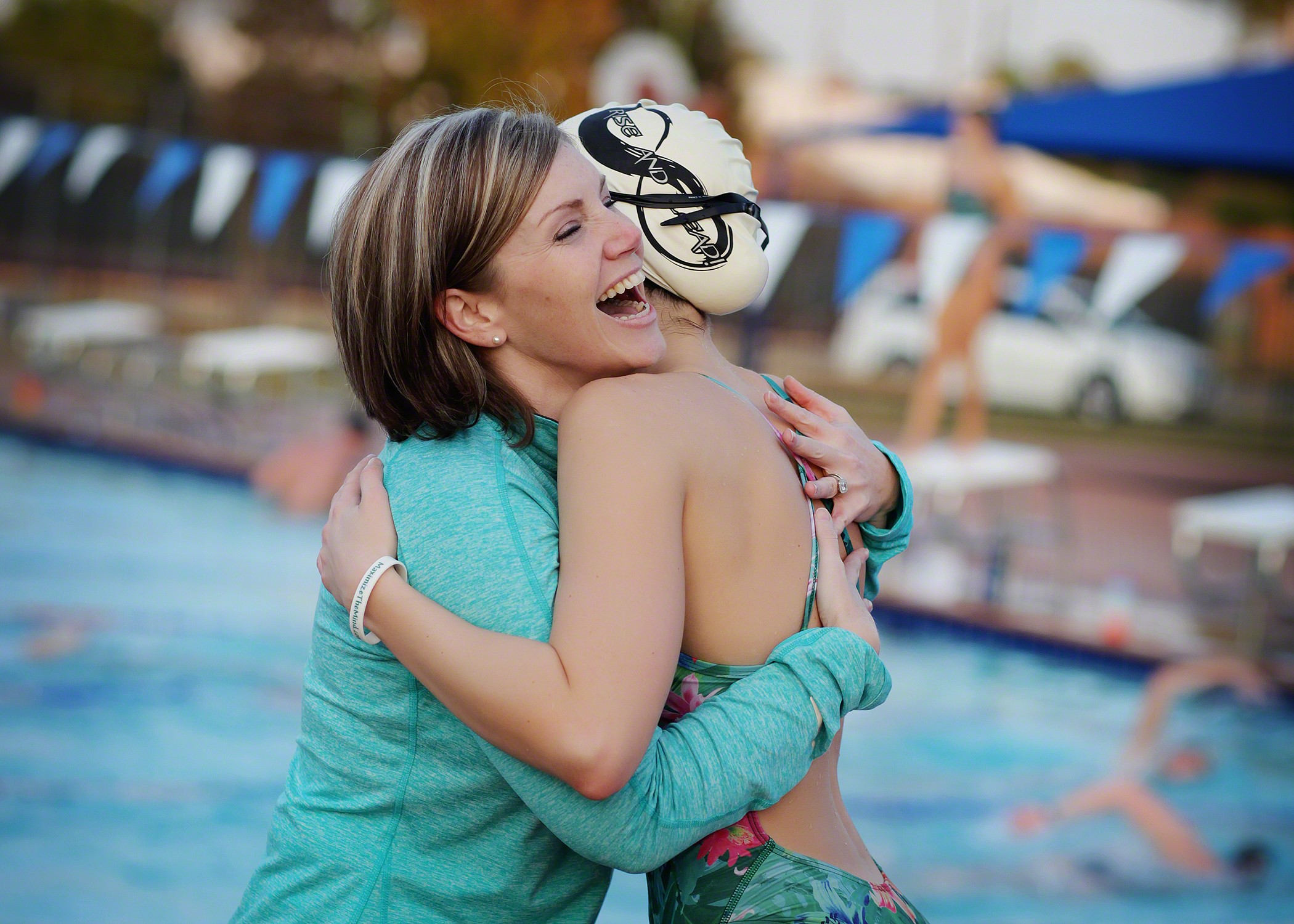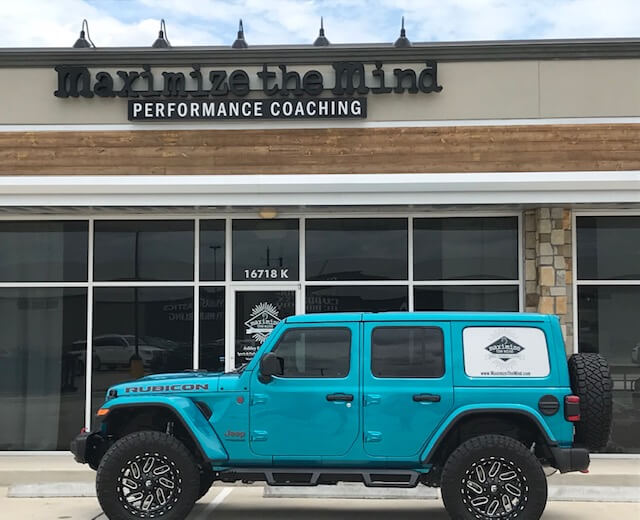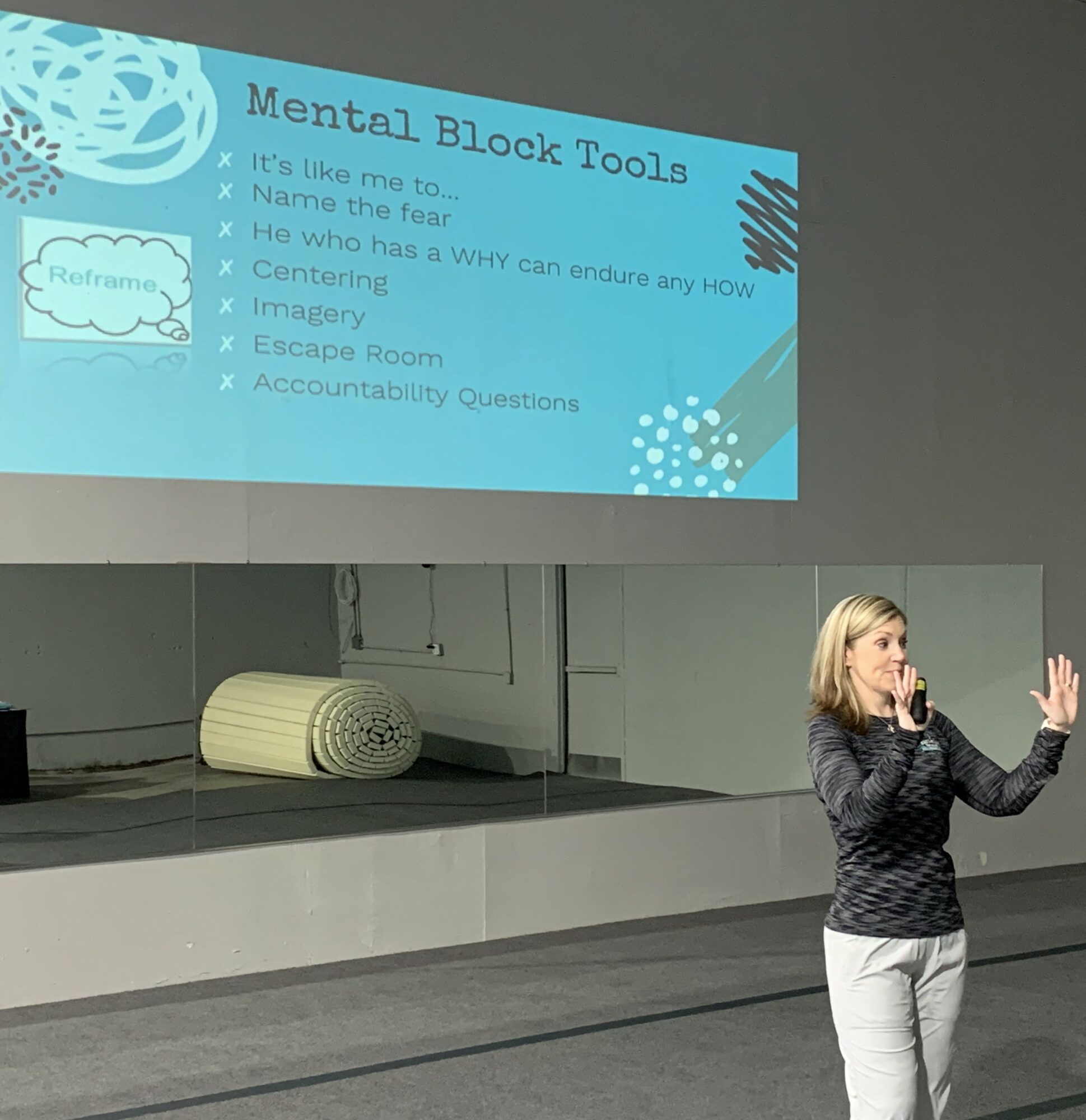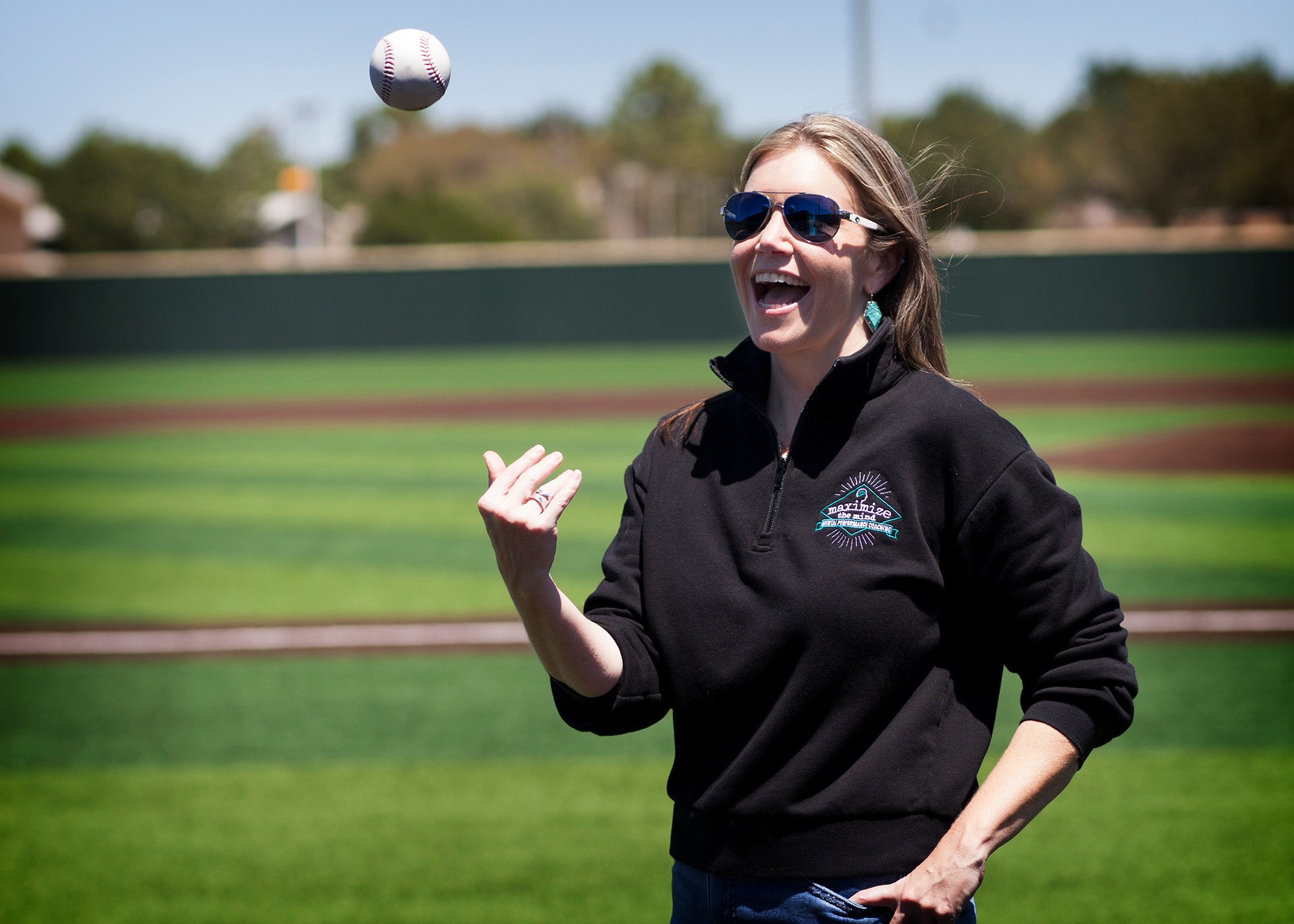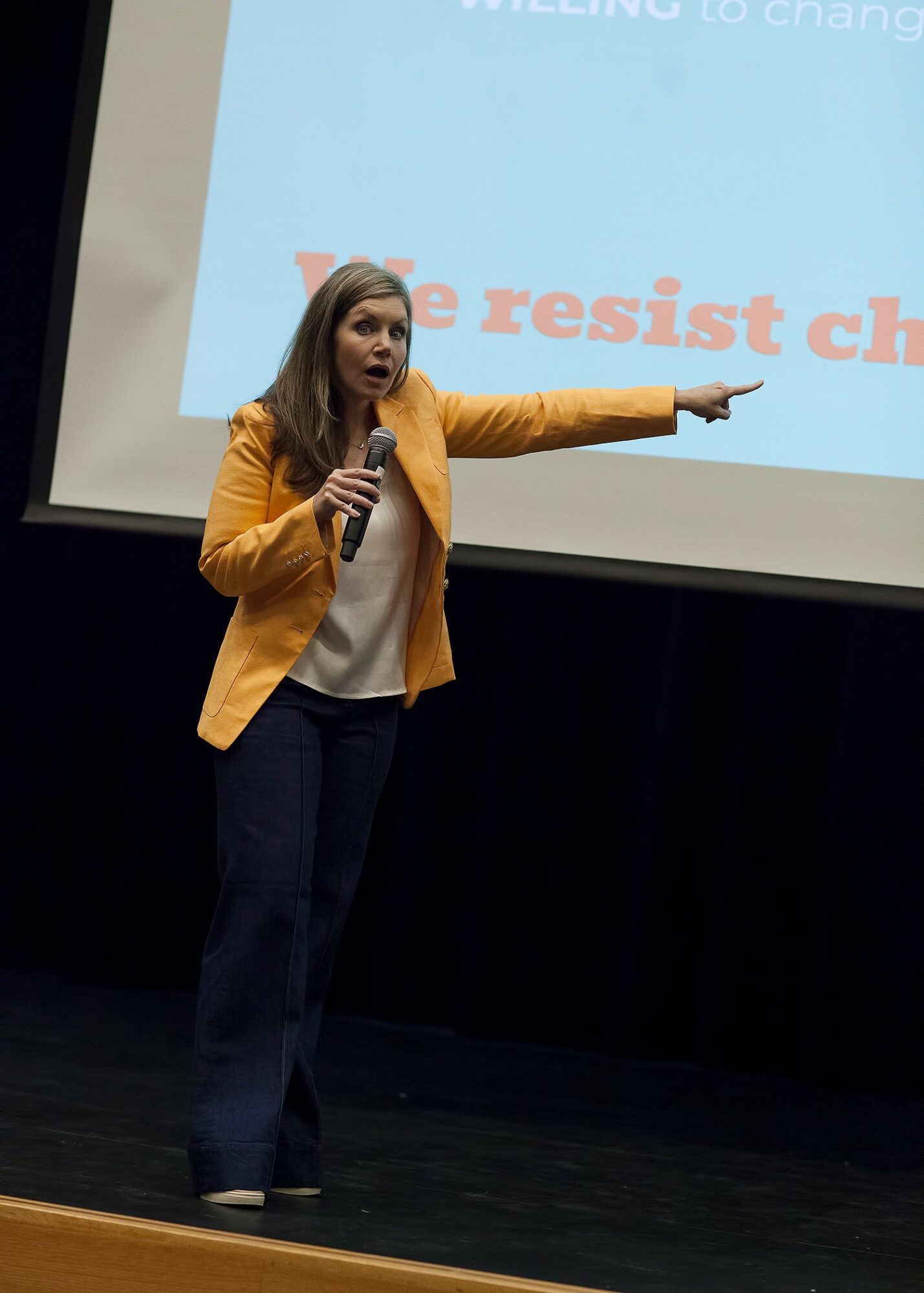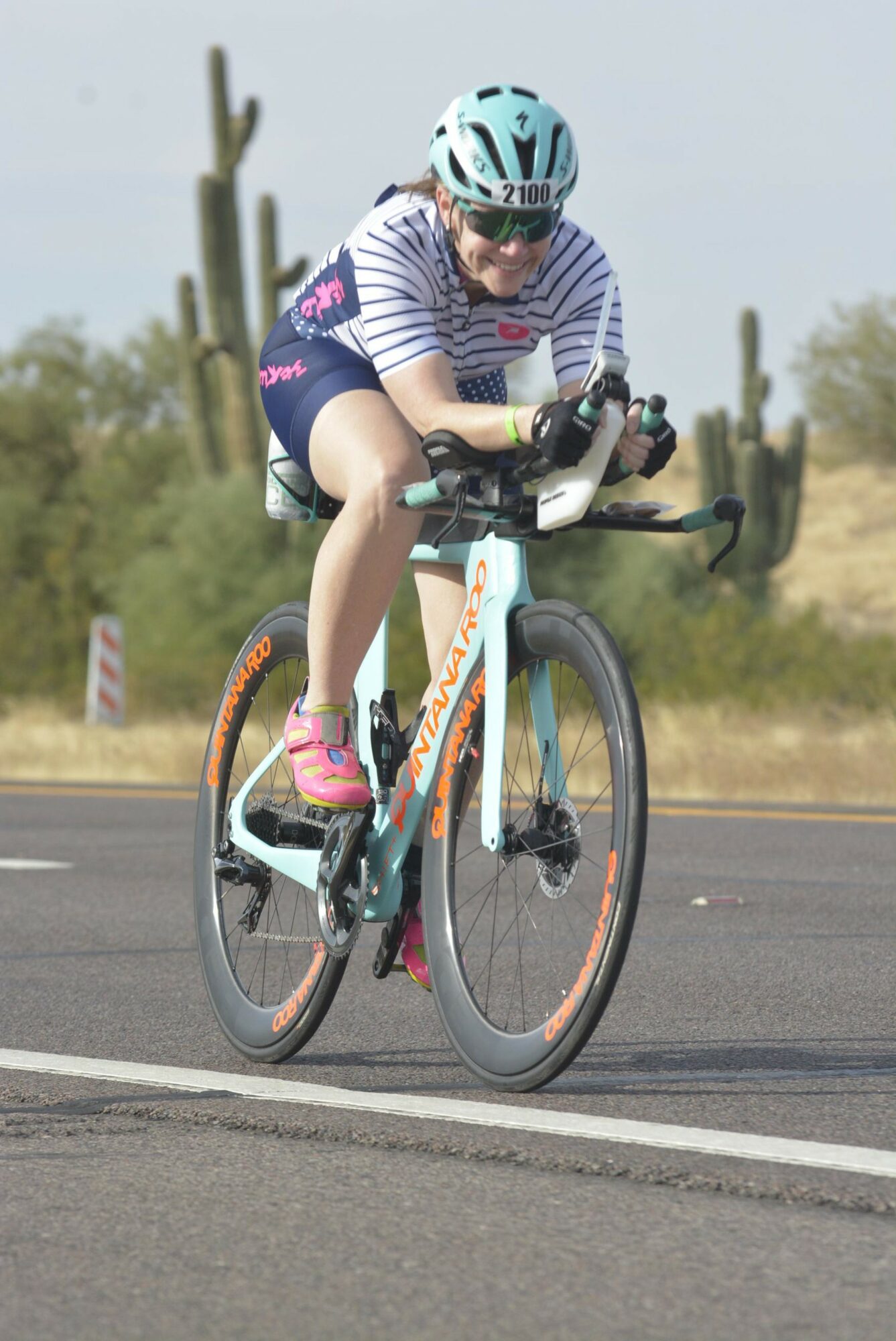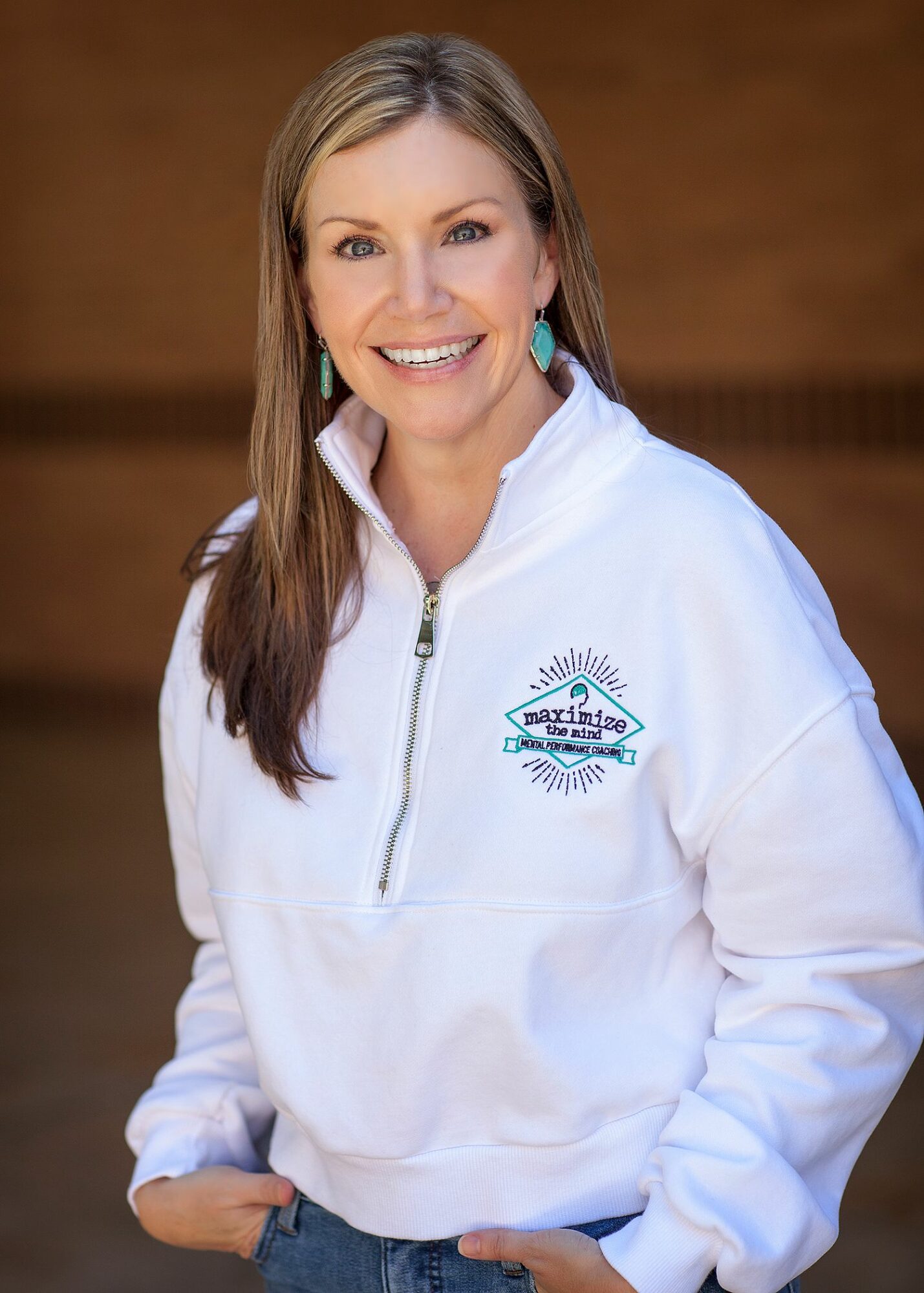

Today we’d like to introduce you to Ashley Eckermann.
Alright, so thank you so much for sharing your story and insight with our readers. To kick things off, can you tell us a bit about how you got started?
I grew up watching my dad play golf professionally. He had all the talent in the world, but he struggled with the mental side of the game: excessive frustration, focus, handling pressure. Back then, sports psychology wasn’t something regular athletes had access to. I would sit there as a kid, praying he’d make the cut that weekend, wishing I could help him. That’s when it clicked for me: if athletes at his level needed these tools, imagine how much junior high, high school, college, or even weekend warrior athletes could benefit.
That’s why I started Maximize the Mind. My mission was never just to work with famous athletes, although I’ve been lucky enough to work with Olympians and pros. My heart has always been with the everyday athlete who wants to learn how to reset after mistakes, build confidence, and compete without constantly beating themselves up. Most kids are perfectionists, seeking approval and terrified of messing up. Schools and teams teach them the physical mechanics, but not how to manage nerves, reframe negative thoughts, or bounce back after setbacks.
Something athletes love about working with us: I don’t believe in positive thinking. The first thing I tell athletes is, ‘Hey, I’m not going to tell you to just think more positively.’ You can see their shoulders drop in relief. They’ve all heard that advice before from parents or coaches: ‘get out of your head,’ ‘stay positive’ but no one ever tells them how. Fake positivity feels cheesy, and it doesn’t work. We teach athletes how to use neutral, believable statements that give their brain clear instructions. That’s what actually moves the needle, not empty clichés.
What sets us apart is that we’re not the stuffy, clinical version of psychology people picture. I still compete, and every coach I’ve hired was an athlete as well as coaches. We know the pressures firsthand. We don’t just throw theory at kids like, ‘focus on the process, not the outcome.’ We connect, we storytell, and then we give them tangible, proven tools they actually want to use. Whether it’s reprogramming the memory of an injury so they can return to play confidently, or rewiring their brain to handle nerves differently, we show athletes exactly how to do it.
At first, many athletes walk in skeptical, they don’t really know what mental performance coaching is. But by the time they leave, they’re saying, ‘Wow, I had no idea it was like this. I want to come back.’ That’s because our goal isn’t to fix something that’s ‘wrong’ it’s to give athletes their competitive edge. At some point, everybody is talented. The athletes who last the longest are the ones who can reset faster, adapt under pressure, and handle whatever obstacles come their way.
For me, this work has always been about more than sports. When athletes learn how to manage stress, bounce back from failure, and build real confidence, those aren’t just game-day tools. They’re life skills. They carry into school, relationships, and whatever career they chase next. That’s what makes this work so meaningful, helping people compete stronger, yes, but also helping them become calmer, braver, and more capable human beings.
Can you talk to us a bit about the challenges and lessons you’ve learned along the way. Looking back would you say it’s been easy or smooth in retrospect?
When I first started, my professors even told me, ‘You probably can’t do this full-time.’ Back then, the model was: you either worked with a pro team or you taught at a university and maybe saw a few clients on the side. But I’ve never been one to just accept the norm. I believed this work could be done differently, more innovative, more fun, more hands-on and that athletes of all levels deserved it, not just the pros.
So, leaving a stable career as a coach and teacher to build something that didn’t really exist yet? That was scary. People thought I was crazy to walk away from success in the traditional sense. But I knew the need was there, because I’d lived it as an athlete who had plenty of physical training but nobody teaching me how to handle stress, injuries, or performance anxiety. It took a leap of faith, but once athletes started experiencing the results, the practice grew quickly.
That said, one struggle hasn’t gone away: education. So many people still associate sport psychology with stigma, like it’s only for athletes who are broken or struggling with mental health issues. That’s not what we do. We fill the gap between therapy and coaching, it’s not about treating depression or eating disorders, it’s about teaching athletes how to manage nerves, deal with heavy emotions, stop overthinking, bounce back from failure, and handle pressure.
Sometimes one parent gets it immediately, while the other resists because they think it’s a weakness. That’s probably our biggest ongoing challenge – showing people that this isn’t about weakness at all. It’s about gaining a competitive edge. At some point, talent alone isn’t enough. The athletes who can adapt, reset, and handle adversity are the ones who stay in the game the longest. And that’s the space we’ve carved out, even when it wasn’t easy at the beginning. We’re thriving practice now and so proud of the work we offer, but so many people just don’t know this type of coaching exists.
We’ve been impressed with Maximize the Mind, but for folks who might not be as familiar, what can you share with them about what you do and what sets you apart from others?
At Maximize the Mind, we train athletes for the part of the game that most coaches ignore: the mental game.
We work with athletes in person at our Cypress office near Hwy 290 and Fry Road, and we also coach athletes all over the country (and even internationally) through virtual sessions. We love virtual sessions because we can keep the work consistent, even if an athlete is traveling for a tournament or short on time.
Private sessions are one way to train with us, but we’ve also built programs to fit different needs, budgets, and schedules. Athletes can join our Mental Game Camp, which is like a crash course in the essentials, resetting after mistakes, handling frustration, building confidence, conquering limiting beliefs, and staying focused under pressure. We also run team workshops, group presentations, corporate trainings, and even on-demand programs.
What sets us apart is how we teach. This isn’t therapy, and it’s not about ‘just thinking positive.’ Athletes that were once resistant to work with us, ask to come back’ They tell us our advice doesn’t feel fake. We teach tangible, science-backed strategies that athletes actually want to use. It’s part conversation, part training ground. Think of it like a mental gym: one day it might be tackling negative self-talk, the next it’s learning how to manage nerves.
Here’s what we’re most proud of: when athletes learn these skills, their physical training finally shows up in competition. If your athlete knows what to do in practice but can’t replicate it in competition, the problem isn’t talent, it’s the mental game. More reps or more private lessons won’t teach you how to manage pressure, block out distractions, or reset after mistakes. That’s where we come in.
What were you like growing up?
I grew up in a big family, one of five kids, so competition was basically baked into our DNA. If we weren’t racing in the pool, on the track, or on the field, we were racing to the dinner table. Sports were a huge part of our lives, and while I thrived on the challenge, I also remember how much pressure I put on myself to perform well. Like so many athletes, I cared way too much about what people thought and was always trying to prove myself.
Looking back, I realize that’s not unusual. Most kids aren’t really taught how to handle stress, criticism, or the pressure to measure up. That’s probably why I love teaching athletes now how to have the conversations I wish I’d known how to have back then: how to handle tough feedback, how to stand up for yourself without being defensive, and how to recognize that confidence isn’t cockiness. I can’t tell you how many athletes breathe a sigh of relief when I tell them, ‘Being confident doesn’t make you arrogant. It just means you’re owning your strengths.’ I don’t just tell them this, like many parents do because that’s all they know how to share, I show them ways to live it with proven tools.
The problem is, our culture has done a pretty poor job here. Kids are told, ‘Don’t brag about yourself,’ so they never learn how to talk about what they are good at. Instead, they obsess over weaknesses and downplay strengths. But everybody has both, and learning how to see yourself clearly, through the lens of sports, through feedback, through pressure, shapes not only who you are on the field, but who you become in the classroom, in a career, and in relationships.
So, yes, I was competitive growing up. But more than that, I was learning (the hard way) how much the mental side of sports matters. And now, that’s my favorite part to teach because if athletes can learn to navigate criticism, feedback, and self-doubt at 14, they’re already ahead of where most adults are.
Pricing:
- All Mental Performance Coaches have their own pricing. Our on demand programs and workshops vary in pricing
- Ashley $195 initial session/$175 follow ups
- Aja $185 initial session/$165 follow ups
- Christa $185 initial session/$165 follow ups
- Dalton $170 initial session/$150 follow ups
Contact Info:
- Website: https://maximizethemind.com/
- Instagram: https://www.instagram.com/maximize.the.mind.official
- Facebook: https://www.facebook.com/MaximizeTheMind
- Twitter: https://x.com/maximizethemind
